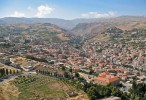Living on the edge
Of course there is a whole new set of challenges for hotels which choose to go down the adventure tourism route - fitting out the property, buying equipment, finding qualified staff and running safety courses won't come cheaply.
However, as Mina Seyahi's Scully comments, this should not deter properties that are serious about focusing on this market.
"Equipment-wise, it's obviously high-capital equipment, so you've got to look at these things as an enhancement to the hotel," he points out. "They don't all necessarily make money in their own right; however if you put them all together, they make your hotel so much more attractive."
And that initial output will pay dividends when the additional activities help the property to stand out in the competitive Middle Eastern hotel market of the future, says Scully.
"In our region there will be 8000 more rooms coming on the market in the next 12 months, and it really is going to separate out the hotels which do have good activities and can entertain their customers from those who don't and which are fairly boring," he says. "That's where the real value is going to come into play, with these activities."

Advertisement
Future adventures
So what's the next step for the adventure tourism industry; how can new hotels enter the field, how can old hotels bring themselves to the attention of the leisure traveller, and how will such efforts pay off in the long run?
On top of changing consumer demands, there are of course numerous projects currently under development all around the Middle East that will attract leisure business - and Mina Seyahi's Scully believes Dubai will be at the forefront of this region-wide change.
"I think with Dubailand and the whole emphasis of those kind of projects, it's all about leisure," he asserts.
Kempinski's Schroth adds: "Dubai Sports City is poised to include more ski resorts and water sports facilities, while the Palm projects will offer more water sport activities for tourists to enjoy. All of these developments are vital for the Middle East to compete in the world travel market as a leader in tourism".
Can the Middle East measure up?
But the world travel market could be the Middle East adventure tourism market's undoing. There are countless places around the world that have been plugging the adventure angle far longer than this region. African safaris, skiing in the Alps, trekking in South America and diving in Australia have long been favourites with adventurous travellers; can this region compete with other countries' natural scenery, wildlife or marine life?
And - novelty factor aside - can man-made marine experiences, indoor ski-slopes and reclaimed islands ever replace the real thing?
Atlantis' Zarzosa says he is uncertain as to whether adventure tourism could ever be a key draw for visitors to the Middle East.
"I think there are plenty of places in the region to direct customers who want to be adventurous - diving, skiing, dune-bashing and so on. However I don't think people specifically come to the Middle East for that. I think there are other great places to go for adventure," he points out.
However Zarzosa adds that things may change once the region's many planned developments come online.
"Although it's not necessarily a hub or the best place for one thing [yet], it is somewhere you can do the whole lot - skiing, water sports, climbing, whatever. I think that will come together more in the future, but it's still a matter of being able to convey that to the traveller, and make sure they are aware of just how diverse a range of adventure activities there is," he says.
But Mina Seyahi's Scully has other ideas. "I don't agree with that at all; I think we're at the centre of [the adventure tourism] market," he asserts. "If you just look at our location, you've got Africa to the south, Russia north and the Asia to the west and east - we are a prime market for all these activities.
"Of course it will take time to develop to the level of Disneyland or something," he admits. "But considering the amount of investment and the partners that Dubai's bringing in, I think they'll be competing head-on with all these countries. And with our location and the flights coming in, our access will be far, far better than any of these other destinations. So I think we'll be right up there with the best of them."
Think clever and capitalise
The adventure tourism market may be taking off, but hoteliers have to be clever to capitalise on this trend.
There are two vital factors for hotels embarking on this route to remember: firstly, do your own thing well rather than trying to do someone else's badly. So a hotel located by a busy and polluted port probably shouldn't set up a diving school and try to compete with Egypt's Red Sea resorts. Adventure tourism is not simply about offering ‘adventurous' activities, it's about offering well thought-out, unusual activities, put together in packages with a difference.
Secondly, as all the aforementioned properties have recognised, adventure tourism can act as a major differentiator between one hotel and its neighbour.
And ultimately, it is these positive differentiators that will keep pulling in the punters if and when supply outstrips demand in the region.









 Search our database of more than 2,700 industry companies
Search our database of more than 2,700 industry companies









